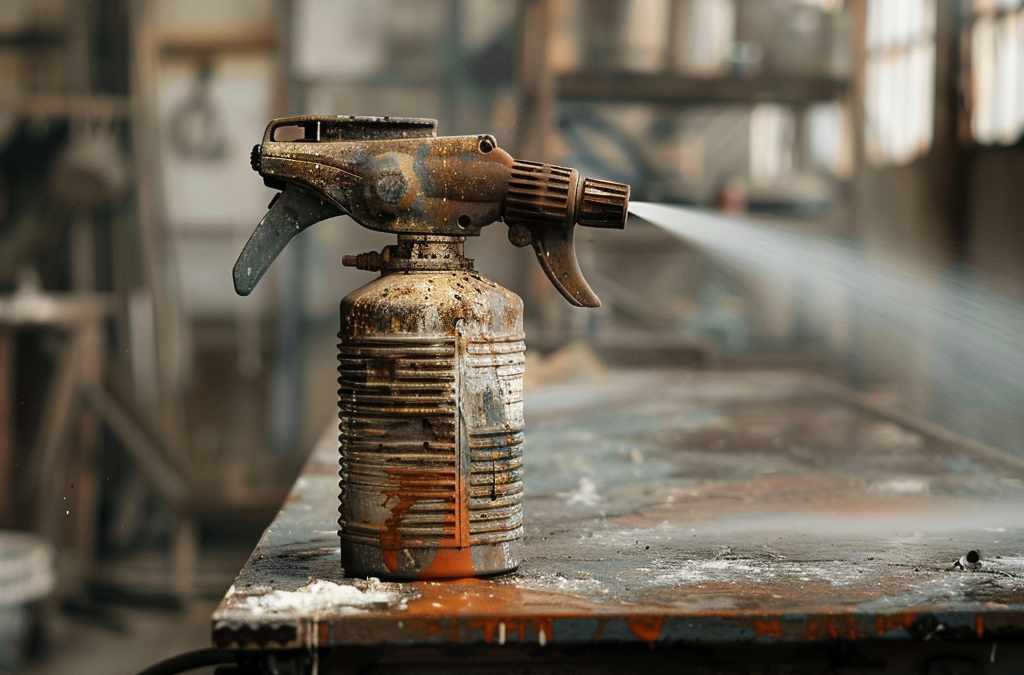Typically, spray painting costs between $14 and $28 per square metre. However, this can vary significantly depending on the job’s complexity and location. Depending on the professional, the hourly rate can range from $35 to $75. Here are the key factors that determine spray painting prices:
1. The Surface
The condition of the surface you plan to spray paint affects the final price. For instance, concrete surfaces may have grime or dirt that requires pressure washing before spray painting. Additionally, gloss surfaces typically cost more than other alternatives.
2. Preparation Required
The amount of preparation work required impacts the spray painting cost, adding time and effort to the job. For example, smooth surfaces may need extra preparation to thicken the foundation so spray paint can be applied effectively.
3. Condition of the Surface
Following preparation, the actual condition of the wall will influence the cost of spray painting. Additional time and effort may be necessary for repairs, which can increase the overall price.
4. Colour Choice
Your colour choices can affect a painter’s quote, especially if selecting two or more colours. This requires masking adjoining surfaces and more attention to detail, adding to the complexity and cost.
5. Size of the Job
The size of the job directly impacts the price. Typically, the larger the area you are covering, the higher the cost. However, small jobs may have extra costs to compensate for travel, setup, and the time taken out of the painter’s day.
6. Height of the Job
High ceilings or roofs may cost more due to increased safety requirements such as harnesses, ropes, and ladders. These tasks usually take longer to complete, contributing to higher costs.
7. Complexity of the Job
Complex jobs may cost more due to the added skill and time necessary to apply the spray paint. For example, a Victorian home with many fine details will require extra attention and effort for intricate designs.
8. Sanding
Cabinetry doors and drawers in a kitchen need thorough sanding, which will incur an additional fee. This step is crucial for achieving a smooth and lasting finish.
Conclusion
To avoid unexpected costs arising during or after your job, consider all these factors when speaking with your prospective spray painting professional. A good spray painter will ask about these factors and account for them in the quote accordingly.
When Should You Hire a Spray Painter?
Spray painting is an excellent option for covering large areas as it applies and dries faster than most traditional paints. It works brilliantly for both interior and exterior home improvements, and it’s optimal for trim work or claddings on your exterior. Spray paint can also be applied to kitchen and bathroom cabinets or doors to provide a stunningly smooth finish, available in both matte and gloss. You can even design a beautiful feature wall with spray painting! Roofing is also an option, though it will require proper cleaning and possible repair work (specific roof paint will be required).
Spray paint provides a pleasing alternative to brush and roller strokes, especially on rough surfaces where it penetrates effectively, resulting in a visually appealing finish for your home or property.
Can I Spray Paint Myself? — DIY
Simply put, we do not encourage taking on a large spray painting job yourself. Spray painting is best left to the experts, as amateurs often achieve sub-par results. Professionals have the necessary equipment and expertise to ensure a flawless finish, including masking surrounding areas to prevent unsightly crossovers.


